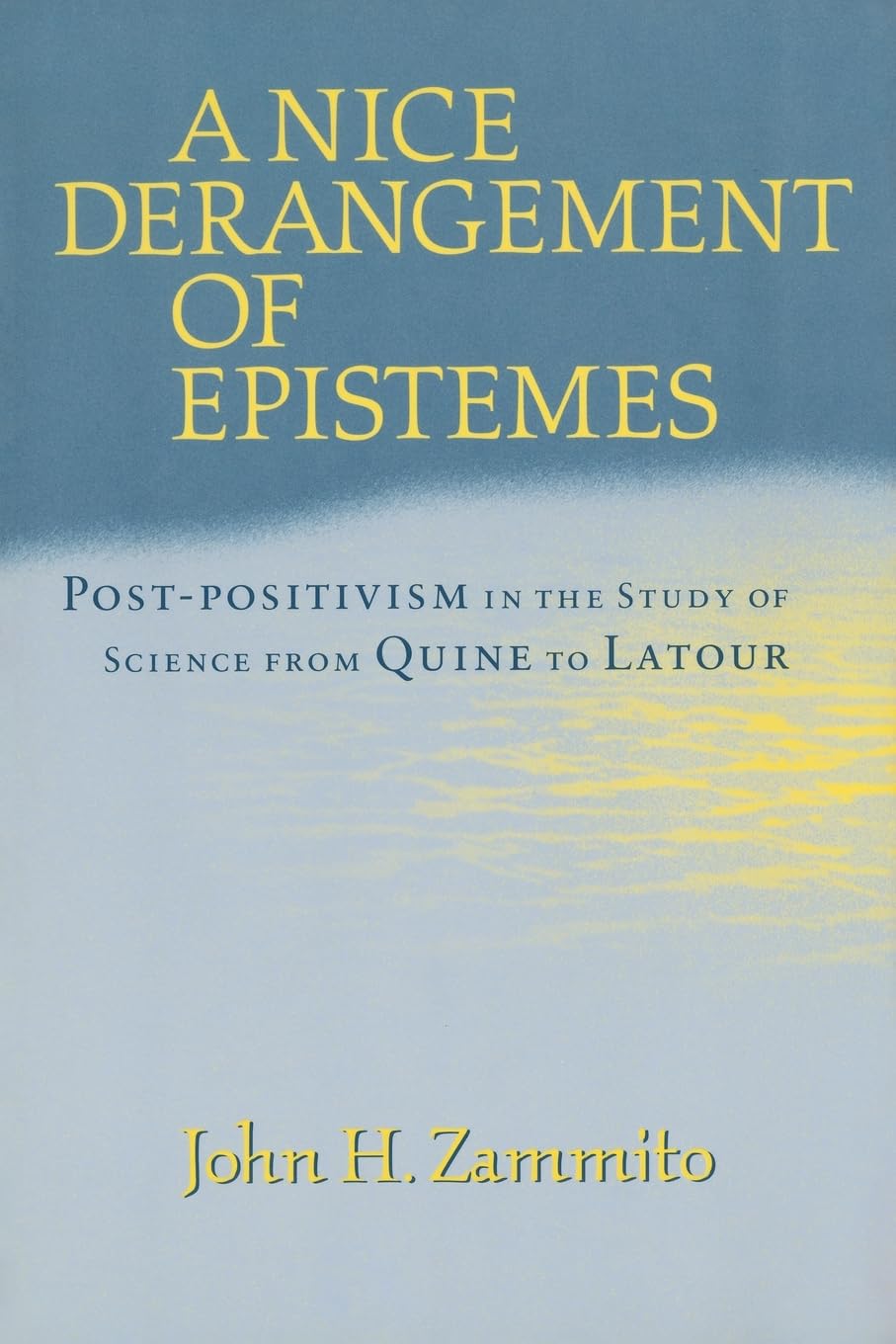
Title

A Nice Derangement of Epistemes: Postpositivism in the Study of Science from Quine to Latour,Used
Delivery time: 8-12 business days (International)
Since the 1950s, many philosophers of science have attacked positivismthe theory that scientific knowledge is grounded in objective reality. Reconstructing the history of these critiques, John H. Zammito argues that while socalled postpositivist theories of science are very often invoked, they actually provide little support for fashionable postmodern approaches to science studies.Zammito shows how problems that Quine and Kuhn saw in the philosophy of the natural sciences inspired a turn to the philosophy of language for resolution. This linguistic turn led to claims that science needs to be situated in both historical and social contexts, but the claims of recent 'science studies' only deepened the philosophical quandary. In essence, Zammito argues that none of the problems with positivism provides the slightest justification for denigrating empirical inquiry and scientific practice, delivering quite a blow to the 'discipline' postmodern science studies.Filling a gap in scholarship to date, A Nice Derangement of Epistemes will appeal to historians, philosophers, philosophers of science, and the broader scientific community.
By changing our most important processes and
products, we have already made a big leap forward. This ranges from the
increased use of more sustainable fibers to the use of more
environmentally friendly printing processes to the development of
efficient waste management in our value chain.
⚠️ WARNING (California Proposition 65):
This product may contain chemicals known to the State of California to cause cancer, birth defects, or other reproductive harm.
For more information, please visit www.P65Warnings.ca.gov.
Shipping & Returns
Shipping
We ship your order within 2–3 business days for USA deliveries and 5–8 business days for international shipments. Once your package has been dispatched from our warehouse, you'll receive an email confirmation with a tracking number, allowing you to track the status of your delivery.
Returns
To facilitate a smooth return process, a Return Authorization (RA) Number is required for all returns. Returns without a valid RA number will be declined and may incur additional fees. You can request an RA number within 15 days of the original delivery date. For more details, please refer to our Return & Refund Policy page.
Shipping & Returns
Shipping
We ship your order within 2–3 business days for USA deliveries and 5–8 business days for international shipments. Once your package has been dispatched from our warehouse, you'll receive an email confirmation with a tracking number, allowing you to track the status of your delivery.
Returns
To facilitate a smooth return process, a Return Authorization (RA) Number is required for all returns. Returns without a valid RA number will be declined and may incur additional fees. You can request an RA number within 15 days of the original delivery date. For more details, please refer to our Return & Refund Policy page.
Warranty
We provide a 2-year limited warranty, from the date of purchase for all our products.
If you believe you have received a defective product, or are experiencing any problems with your product, please contact us.
This warranty strictly does not cover damages that arose from negligence, misuse, wear and tear, or not in accordance with product instructions (dropping the product, etc.).
Warranty
We provide a 2-year limited warranty, from the date of purchase for all our products.
If you believe you have received a defective product, or are experiencing any problems with your product, please contact us.
This warranty strictly does not cover damages that arose from negligence, misuse, wear and tear, or not in accordance with product instructions (dropping the product, etc.).
Secure Payment
Your payment information is processed securely. We do not store credit card details nor have access to your credit card information.
We accept payments with :
Visa, MasterCard, American Express, Paypal, Shopify Payments, Shop Pay and more.
Secure Payment
Your payment information is processed securely. We do not store credit card details nor have access to your credit card information.
We accept payments with :
Visa, MasterCard, American Express, Paypal, Shopify Payments, Shop Pay and more.
Related Products
You may also like
Frequently Asked Questions
- Q: What is the main theme of 'A Nice Derangement of Epistemes'? A: The book explores the critiques of positivism in the philosophy of science, highlighting how post-positivist theories often fail to support contemporary postmodern approaches.
- Q: Who is the author of this book? A: The author is John H. Zammito, a philosopher known for his work in the philosophy of science.
- Q: What is the publication date of this book? A: The book was published on February 15, 2004.
- Q: How many pages does 'A Nice Derangement of Epistemes' have? A: The book has a total of 400 pages.
- Q: What type of binding does this book have? A: This edition of the book is paperback.
- Q: Is this book suitable for individuals outside academia? A: Yes, it is intended for historians, philosophers, philosophers of science, and also appeals to the broader scientific community.
- Q: What key arguments does Zammito present in the book? A: Zammito argues that critiques of positivism do not justify a rejection of empirical inquiry and scientific practices.
- Q: Does the book address the philosophy of language? A: Yes, it discusses how issues identified by Quine and Kuhn led to a linguistic turn in the philosophy of science.
- Q: What is the book's stance on postmodern science studies? A: The book critically examines postmodern science studies, suggesting that they deepen philosophical quandaries rather than resolve them.
- Q: Who would benefit from reading this book? A: Readers interested in the philosophy of science, its historical critiques, and the interplay between science and social contexts will find this book valuable.
